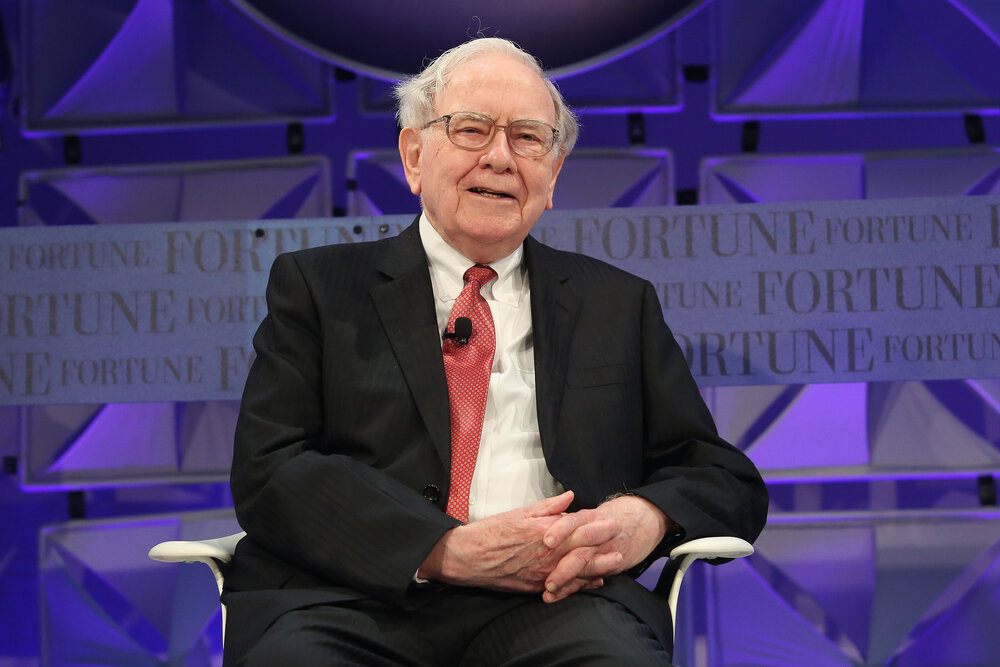Berkshire Hathaway 2021 Annual Meeting Insights
/1. “Why did you sell rather than buy last year?”
The question asked what was on many people’s minds: why did Warren Buffett end up selling stocks on the balance and not even buying back a material amount of Berkshire Hathaway’s stock last year? Hasn’t he taught us to be greedy when others are fearful rather than to be fearful with everyone else?
Buffett tactfully deflected a good portion of the question, but here is my read. He was expecting a much more severe and prolonged market dislocation. This was guided by his long experience in the markets, where Berkshire’s ability to be the lender/buyer of last resort has paid off well in other crises. So he passed up on merely good opportunities, waiting for ones that were extraordinary.
Unfortunately, he got muscled out of those by the quick reaction of the Federal Reserve, which reacted with overwhelming shock and awe of liquidity. This prevented Buffett from getting the distressed bargains at scale that he has been used to and was anticipating this time. So in a way he let the perfect be the enemy of the good and Berkshire Hathaway missed out on some bargains.
He also made a very fair point: in the depth of the crisis there was no way to know how severe and prolonged it would be. For example, had airlines not been bailed out by the government, they could have easily gone bankrupt. In his view, a large stake in the industry by Berkshire Hathaway would have lessened the likelihood of a government bailout. So selling was rational given what he knew at the time, even if it might not have turned out great after the fact.
2. Is the stock market overvalued?
Buffett gave his now standard speech about how the low interest rates, if sustainable for decades, more than justify today’s valuations. However, I think this is just polite deflection, as he has little interest in going on record and saying the market is overvalued (or not). Much more telling is what Berkshire Hathaway does under his guidance rather than what he says.
And what is Berkshire Hathaway doing? Well, it is certainly not snapping up stocks in large amounts that he says would be attractive if the interest rates were to stay where the bond markets predict they will. So either Buffett doesn’t think the current rates are sustainable, or he thinks that he is better off waiting for a future temporary dislocation rather than committing additional capital to U.S. equities at the current meagre expected rates of return.
Interestingly, he mentioned that he did buy a basket of high quality U.S. equities about which he professed to not have any unusual insights. That caught my attention as that is certainly not consistent with Buffett’s previous way of investing. It almost comes across as a hedge, as in “gee, I think the markets are too high because rates are not going to stay here forever, but just in case I am wrong I want to have a basket of high quality U.S. stocks.”
Additionally, Buffett mentioned that a number of Berkshire companies are seeing accelerating inflation in the form of price increases that are sticking. Both he and Munger expressed skepticism that the novel monetary policies currently in use will not lead to unexpected, and likely unpleasant, consequences. In other words: inflation is rising, they don’t think that these rates are going to be at these levels forever, so stocks are far from cheap.
Both Buffett and Munger made a number comments about the bubbly nature of the current market environment. The usual suspects all came up: SPACs, “commission free” brokers, etc. As Buffett put it, “Nobody tells you when the clock strikes 12 and everything turns to pumpkins and mice. This is about as extreme as we have seen it.”
3. Management
“The number one risk, and you never see it in the Risk Factors section of a 10-K, is that a business gets the wrong management.” It’s amazing how many people don’t think about this seriously enough. I am not surprised – if an “investor’s” time horizon is a quarter or a year, this doesn’t really rank high on their list. However, if you make an investment with the intent to own the business for many years, then management is one of the biggest determinants of your outcome.
Think of it this way. In a Discounted Cash Flow (DCF) model, you are calculating the net present value of future cash flows as an estimate of the value of the business. The implicit assumption is that $1 of cash flow is worth $1 before adjusting for the time value of money. However, if you have a management team that habitually destroys capital with “strategic” acquisitions, then perhaps $1 of cash flow should be worth far less.
Or if you have a management team that degrades the company’s culture and allows its competitive advantage to decrease or disappear, then the cash flow stream could end up being far smaller than you envisioned. It’s like looking at a chess position that a Grandmaster achieved, and focusing only on the position. However, what if instead of the Grandmaster continuing to play, you were to allow me to take over and play onward? I can assure you that I can, and have, snatched many a defeat from the jaws of victory, and so can an inferior management team taking over a well-managed business. You just might not realize it for a while.
Note: All quotes from Buffett and Munger are based on my notes and best recollections from listening to them speak, and are likely to contain small errors which I hope do not change their intended meaning.
If you are interested in learning more about the investment process at Silver Ring Value Partners, you can request an Owner’s Manual here.
If you want to watch educational videos that can help you make better investing decisions using the principles of value investing and behavioral finance, check out my YouTube channel where I regularly post new content.




